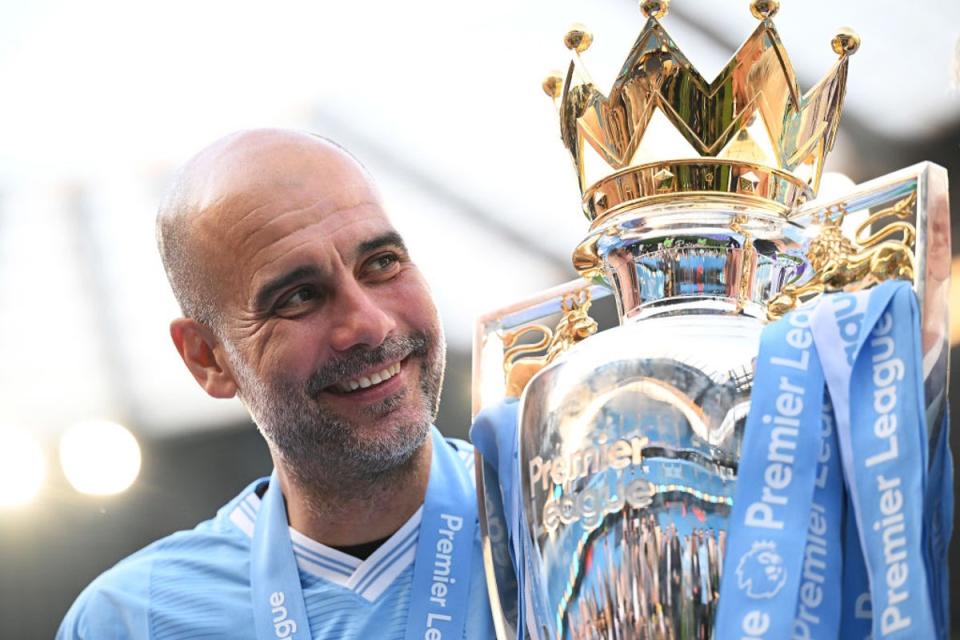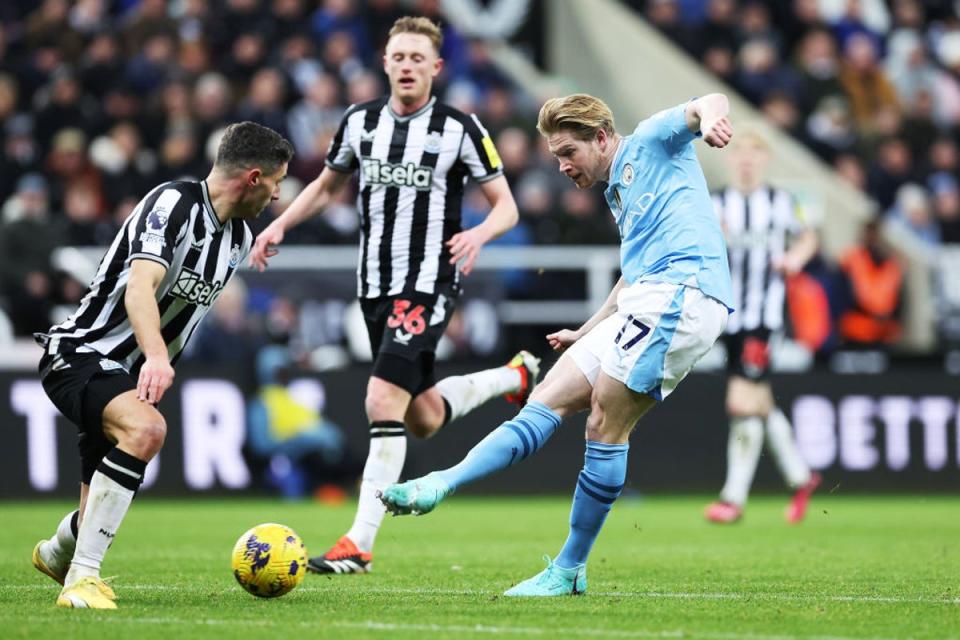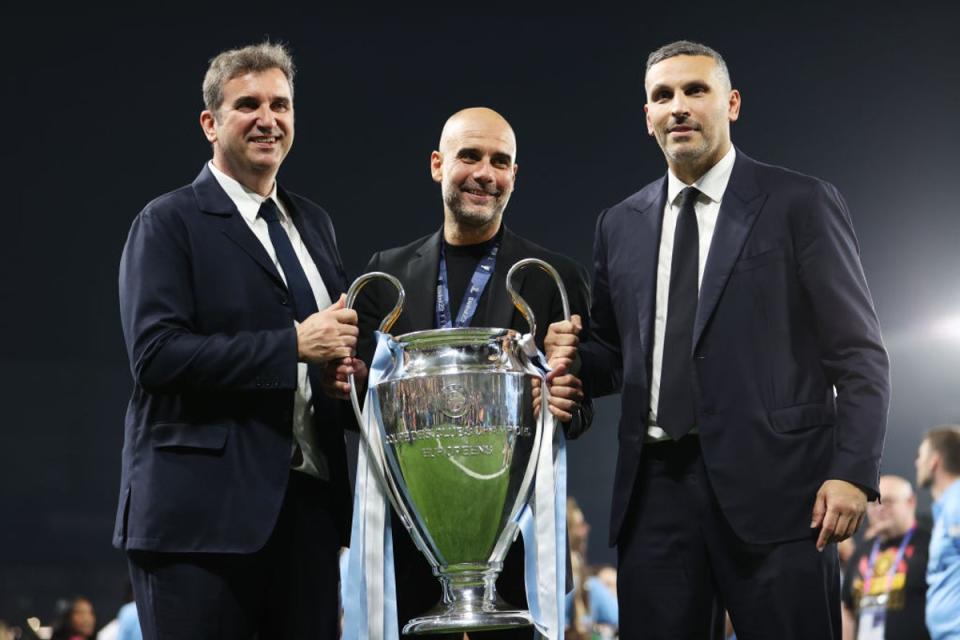For many in the Premier League, the latest Manchester City case is grim: it is “another decisive battle in the war for the future of football”.
That is the only conclusion that many executives can come to after weeks of delving into the various aspects underlying this latest crisis. Therefore, initially there was a calm The times broke the story of City’s legal action against the Premier League on Tuesday, even as the public reaction sent many into renewed anger. Everyone in the league has known this for months. It’s really something that’s been building for years, another case that serves as a distillation of so many of the game’s many problems, in addition to the pending 115 charges alleging violations of cost control rules. City emphasizes their innocence there. This whole story reaffirms the most important of these issues, which is the true meaning of state ownership like that of City’s Sheikh Mansour.
This case is hard enough on the surface. City is contesting the transaction with associated parties [APT] rules, which mean that any commercial deal with a related party must go to an independent panel to determine whether it has a “fair market value”. If successful, it could feasibly mean that any UAE-affiliated entity could strike whatever deal they wanted with City, without an independent review.
While the implications of City’s success here are clear, in reality this legal challenge has much greater significance than that. It’s about tearing apart the fabric of the game and the spirit of ‘competitive cooperation’ on which it is necessarily built. Put bluntly, City have signed the Premier League Treaty, which requires a 14-20 majority for any decision, and this is exactly what the owners believe. Only now they’re deciding that this shouldn’t apply to them and are turning to the strategy favored by the wealthiest: overwhelming the British justice system with more money than your opposition. And no one has more money than a state that controls up to 9 percent of the global oil economy.
The easiest way to think of this is that this could change the structure of the game in a more drastic way than a Super League.
This also reflects the fundamental problem of allowing states – and especially autocratic states – to own football clubs. There are so many warnings in one story. A system that depends on rules is challenged by interests that are used to only establishing their own laws. How can sports organizations be expected to regulate state actors, especially if they have geopolitical relationships with leagues’ home governments? The Richard Scudamore era in the Premier League really has so much to answer because so many different questions arose years ago.
Before we even get to the enormously difficult issue of trying to regulate state ownership, there is the very difficult issue of trying to regulate the competitive balance in a global sport like football. The Premier League is already engaged in debates over the best possible system, which was due to be debated at Thursday’s AGM. Every league must try to ensure that as many clubs as possible can win, while ensuring that they are not put at financial risk as various self-interested forces try to exert their influence. That’s extremely difficult to navigate. The real solution is proper redistribution of the game’s immense existing money and talent, but that requires tough negotiations where people actually think about the long-term good of the sport. The easy alternative that is always put forward is ‘investment’. The problem is that the game remains dependent on who invests, and this would only exacerbate existing problems.


These problems become unsolvable if states with essentially unlimited wealth throw in whatever they want. What would the Premier League become?
This is exactly where this latest City case has brought so many issues to a head, while also demonstrating the next level of complications in attempts to regulate state ownership. It is exceptionally difficult to clarify the blurred boundaries between companies and the state in a legal structure where the royal family can simply appropriate everything. One manager’s argument is that “in the end it all comes from the same pot of money.” Four of City’s main sponsors have ties to the UAE. The APT regulations are an attempt to address some of this.
City’s 165-page legal document attempts to make a familiar argument, saying they are victims of “Golf ownership discrimination”. The misconception here is that the nature of their ownership raises much more complicated questions. There is a huge difference between a commercial deal with a company with shareholders and a deal with a state entity that has no such obligations.
That’s also where their case could be weakened, as Newcastle United are the only other Premier League club under that kind of ownership. The regulations were even voted on as a direct result of the PIF acquisition, but they did not join the lawsuit. Newcastle have sent a letter of support, but it is seen as of minimal evidentiary value and instead they just watch.


As to why City are pursuing this, many in the Premier League see it as a “counter-attack” in relation to the 115 charges. It should be emphasized that the regulations being challenged are different from those in the longer-term study. There is also the more relevant fact that City’s entire empire has been built on sponsorship deals governed by these rules. There is a direct interest in challenging it. It all still falls within this wider context, where it feels like the Premier League – and perhaps the wider game – has been building towards this existential moment.
That has raised broader questions within football, about how this fits into ‘sports washing’. The truth is that the concept this sentence is trying to cover has never been about something as simple as ‘PR’ or even the local market. The city’s owners want to build this global entity that will represent Abu Dhabi around the world and parallel the state’s ambitions in the developing world.
They look far beyond the Premier League, as this case illustrates. City manager Ferran Soriano said it himself in his book, in which he said that his only interest was his own club. It is difficult not to remember another sentence from the Catalan, in an email published in Football Leaks. In this way, City risks becoming the “global enemies of football”. That’s the point we’re reaching. When it comes to sportswashing and state ownership issues, there is clear symbolism in a club owned by a high-ranking royal family from an autocracy complaining about a democratic system.


That system is now under threat. As for what follows, the Premier League believes their case is “legally sound” under British law, but there are still clear concerns. City is optimistic and looks at every part of the law, as expected of a legal team costing tens of millions. A good lawyer can win any case.
It’s hard not to see all of this as bleak for the game and reflective of a new era. The consequences could also extend beyond the way the Premier League is played. It may be about whether there is play. Many clubs are already wondering whether there is much point in continuing if City wins. Could they consider resigning from the Premier League and joining the English Football League, in a reverse situation from 1992? Would City be more interested in a Super League given their global ambitions?
This does not mean that this will happen, but the very fact that these topics are being discussed shows how serious this matter is.
Even if they don’t happen, this is all how you kill the spirit of the sport. It shows the historical error of football subjecting itself to forces it can never control.